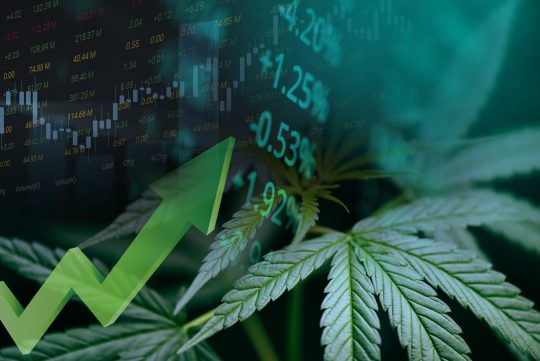
Cannabis Legalization; A Cause for Good?
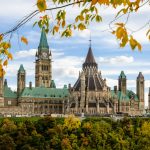
Cannabis Legalization in Canada

Cannabis Legalization in the United States

Cannabis Legalization in the United Kingdom

Facts About Cannabis

The War On Drugs

Ties to The Prison-Industrial Complex

Path to Legalization in the US

Continuing Contradictions

Mexico’s Cannabis Revolution

Incentives for Legalization

Examples of Cannabis Success Stories

The Experts Weigh In!
Cannabis Legalization; A Cause for Good?
The US, Canada, and the UK have suffered terrible economic blows, and this has left politicians on both sides of the Atlantic scratching their heads on how they can decrease their respective national deficits and raise funds to balance out the unprecedented expenditure that was needed to combat the pandemic.
This being the case, many experts now agree that the time is ripe for a reconsideration of the legalization of cannabis for recreational use.
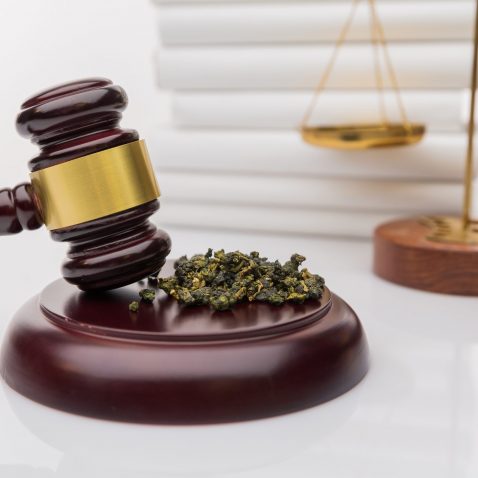
Citing Canada (where cannabis has been legal to use for both medicinal and recreational purposes since 2018) and certain parts of the United States, as an example, many experts point out that legalizing cannabis in the UK could generate anywhere between £1.4bn to £3.4bn in additional revenue.
A report carried out by Health Poverty Action – a non-profit organization that seek to improve health and challenge the causes of poverty – state that;
“A system similar to the established cannabis markets in the United States could generate as much as £2.26 billion a year from tax and license fees…” [i]
Those three countries (Canada, US, and the UK, respectively) present three noticeably different ideas of cannabis legalization; with Canada fully legalizing the sale of cannabis for both medicinal and recreational use, the US has a more relaxed approach in some states whilst cannabis remains illegal in others and no legalization whatsoever on a federal level, the UK meanwhile still takes the stance of making cannabis illegal to grow, sell or distribute, for any reason medicinal or otherwise.
However cannabis-based products were legalized in November 2018 though prospective patients must meet stringent criteria and be prescribed the products by a consultant.
Cannabis Legalization in Canada
Canada is commonly recognized as one of the more liberal Western countries in the world, and with this reputation, their relaxed stance on cannabis comes as no great surprise to the vast majority of people.
The government of Canada fully legalized cannabis for both medicinal and recreational purposes on 17 October 2018, following a campaign promise of Canada’s Prime Minister Justin Trudeau.
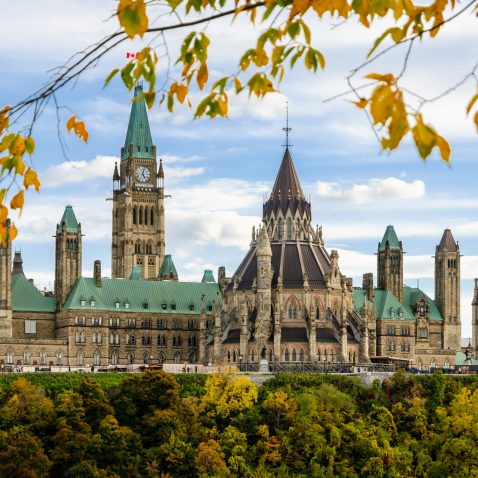
Trudeau’s reasoning behind legalization was twofold, one reducing the availability of cannabis amongst Canada’s youth (at the time, one of the biggest demographics to use cannabis in Canada) and two; to take Cannabis (and all associated funding) out of the hands of criminal organizations.
Many critics contend that Canada becoming only the second country in the world to legalize cannabis (after Uruguay) was more due to Trudeau wanting to appeal to a younger voting demographic coupled with the estimated $400m a year in tax revenues on the sale of cannabis that the federal government predicted.
Whatever the true reasoning behind the push for legalization was, there is no doubt that Canada is now praised as a benchmark by pro-legalization campaigners in other countries for the benefits that legalization can bring.
Cannabis Legalization in the United States
Cannabis in the US remains a complicated topic, not just from a moral standpoint but a legal one too.
Over recent decades many US states have slowly relaxed their cannabis laws, from some choosing to decriminalize small amounts for personal use to other states going further still and completely legalizing it.
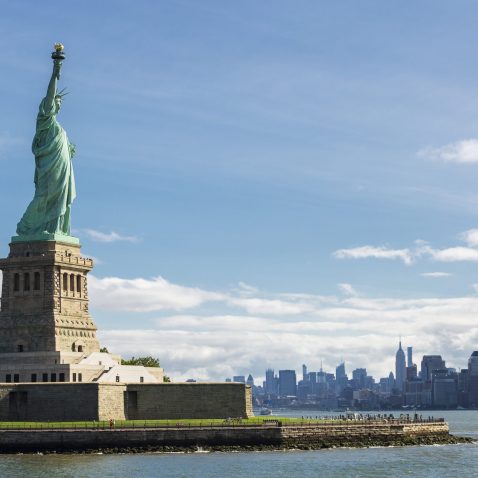
Even in these states, though, there is contradictory information as cannabis still remains illegal at a federal level, and this can cause many users to be unfairly victimized based upon the whims of local authorities as opposed to the application of consistent legislation.
The history of the campaign to legalize cannabis is intrinsically tied to everything from the civil rights movement, the anti-war effort, a discriminatory criminal justice system, and a run-for-profit industrial prison complex.
Understanding the complicated, emotive, and concerning history of the legalization of cannabis is important as not only does it help us understand better why we are where we currently are in terms of state to state variances in legislation but also how much further we have to go to succeed in the federal legalization of cannabis.
Cannabis Legalization in the United Kingdom
The current illegality of cannabis in the UK has been a point of contention over the last few decades between pro-legalization advocates (who insist that scientific studies refute the dangers of cannabis use and back up the innate health benefits and potential positive economic benefits of legalization) and more conservative individuals who insist on labeling cannabis both dangerous in its own regard and accusing it of acting as a gateway drug.
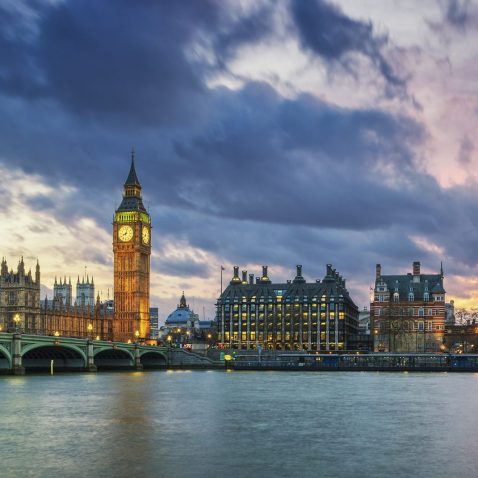
Successive recent UK governments from across the political spectrum have failed to tackle this issue in any meaningful way and have dismissed the recent scientific, data-backed studies from across the world, which highlight the benefits of cannabis use and instead relies on anecdotal studies and polls that align with current preconceived notions of cannabis use and its effects.
But with a massive hole in the UK economy, with looming unemployment, and a housing crisis on the horizon, surely it is now time for the current government to rethink its policy of dismissing the case for legalization out of hand and instead look at the facts.
Facts About Cannabis
A 2017 report from the US National Academy of Sciences titled; “The Health Effects of Cannabis and Cannabinoids” [ii] indicates that evidence does indeed suggest a plethora of positive medicinal side effects that can be attributed to the use of cannabis.
The report specifically states that;
“there is conclusive or substantial evidence that cannabis or cannabinoids are effective; for the treatment of chronic pain in adults, as antiemetics in the treatment of chemotherapy-induced nausea and vomiting, and for improving patient-reported multiple sclerosis spasticity symptoms.”
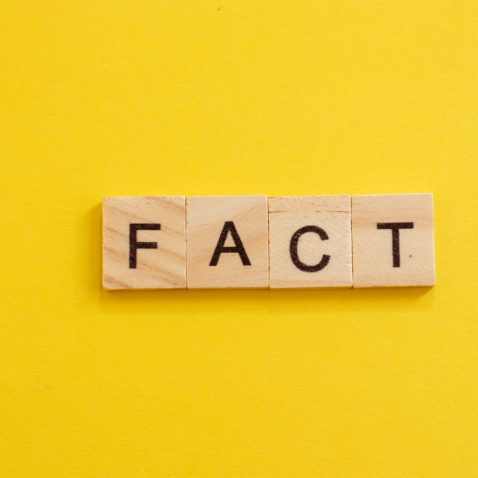
Further to this, the report highlights a number of other medical areas such as improving short-term sleep outcomes for individuals with sleep disturbance associated with obstructive sleep apnea syndrome, fibromyalgia, chronic pain, and multiple sclerosis, ability to increase appetite, and decreasing weight loss associated with HIV/AIDS, and an improvement of symptoms for sufferers of Tourette syndrome, anxiety, and posttraumatic stress.
The outcomes stated in this report are backed up by dozens of in-depth, rigorous, peer-reviewed studies, and these findings have helped influence the recent relaxation and, in some cases, legalization of cannabis in many states across the US.
Further scientific studies based on clinical trials in Israel conclude:
“Cannabis as a palliative treatment for cancer patients seems to be a well-tolerated, effective and safe option to help patients cope with the malignancy related symptoms.” [iii]
In addition to this (and in contradiction to one of the strongest arguments from legalization opponents; that cannabis acts as a gateway drug), there are ongoing studies that show promising evidence that:
“CBD (one of the major components of cannabis) might be beneficial for treating opioid-dependent individuals” [iv] and thus “help(s) to reduce side effects normally associated with current opioid substitution treatment strategies.”
This being the case, then surely cannabis can be seen not as a starter drug that would open the “gateway” to stronger, more harmful drugs but rather as a natural intoxicant that acts as a cure for the ill, a treatment for the addicted and is much less harmful than current legal highs such as alcohol and tobacco.
In 2019, NHS England stated that they estimate that “alcohol-related harm” costs the NHS around £3.5 billion pounds, with a UK government report finding that alcohol-related violent crime costs the UK taxpayer well over £1 billion pounds, as well as an additional half a billion for alcohol linked crimes and another half billion pounds in welfare payments for those unable to work through health problems attributable to alcohol consumption.
Meanwhile, the UK government received over £12 billion pounds through its “alcohol duty,” meaning that although the government has concrete, statistical data to back up the monetary, health, and social harm alcohol causes, they are in no hurry to criminalize alcohol, perhaps due to its profit-making potential.
The UK’s latest budget indicated Chancellor Rishi Sunak’s desire to get the country on a path to recovery, and foremost amongst the ways in which he aims to do this is to “drive jobs, growth, and investment to help the economy rebound,” what better way to get the economy to rebound than taking money out of the hands of organized crime, establishing an extensive and well-regulated new sector and then reaping the accompanying tax windfall off this untapped market.
Of course, when I say “untapped,” that’s not strictly true; according to the UN, the UK produced 44% of global cannabis plants intended for medicine and scientific research in 2016, even though its own citizens could still be theoretically jailed for five years for possession.
Positive moves have occurred recently in parts of the UK with Scotland approving its first medical cannabis clinic in March 2021.
This decision by Scottish regulators follows on from a piece of UK legislation that passed in November 2018 that legalized medical cannabis-based products and allowed doctors to prescribe it in certain circumstances.
A further part of this legislation moved cannabis from a Schedule 1 Drug (the classification that means the drug offers no medicinal benefits) to a Schedule 2 Drug which means cannabis falls into the category of drugs that are controlled but have a recognized medical use and can be prescribed in certain circumstances.
So the UK has legalized medical cannabis-based products and allowed doctors to prescribe it in certain circumstances, yet many are unsure precisely what those circumstances are as NICE (National Institute for Health and Care Excellence) guidelines to consultants are so stringent, very few prescriptions have actually been written over the last two years.
The UK produces almost half of all cannabis used for medicine or scientific purposes but still jails those who use it recreationally, it legalizes medicinal cannabis-related products, yet puts in place so many obstacles that many severely ill children have yet to receive the medication they are legally entitled to.
Added to this the UK government have made a declaration on the petition section of their official website, that should any public petition gain more than 100,000 signatures then the petition could be debated in parliament.
In 2016 a petition to legalize cannabis got almost a quarter of a million signatures and was summarily dismissed out of hand, with no debate and the weakest of statements provided as an excuse from the then government.
So whilst the UK government is happy to shut down debate on legalization, continues to enforce archaic and outdated cannabis criminalization policies, and deprive severely ill adults and children of a legal, medicinal drug they have no problem profiting on the creation of medical cannabis as a whole.
This sort of blatant hypocrisy is something advocates for cannabis legalization have been struggling against for years.
The War On Drugs
Whether it’s the UK governments bizarre U-turns on the classification status of cannabis or perhaps more bizarre still when sitting Presidents of the US have readily admitted to smoking cannabis and yet still continued to engage in the fruitless and unbelievably costly “war on drugs.”
President’s George W. Bush, Bill Clinton, and Barack Obama have all been known to have enjoyed cannabis in their youth for recreational purposes, and yet showing the rampant hypocrisy one can only equate with politicians, each in their turn have either continued or ramped up their efforts to crack down on illegal drugs.
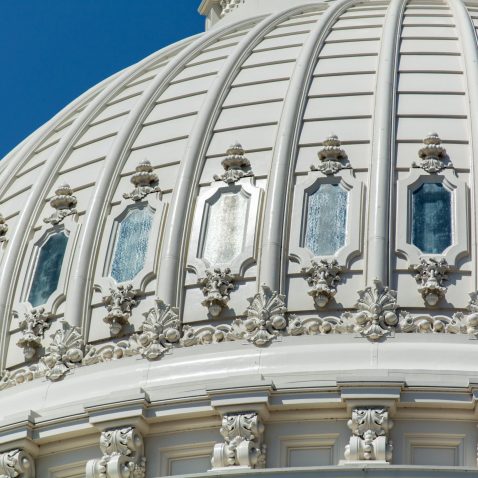
The problems with the war on drugs are many, varied, and have their roots in recent American politics, but the attack on cannabis goes back even further than that.
The “Marihuana Tax Act of 1937” was the first major law in the US to attempt to reign in the prevalence of cannabis (hemp) but certainly not the last.
Some scholars believe this entire Act was envisioned and brought about by certain wealthy industrialists like Randolph Hearst and Andrew Mellon, who, having invested heavily in both timber and nylon, believed that hemp represented a direct threat to this investment.
Whilst other academics dispute these findings, there is no doubt that after the Act and over the subsequent decade’s cannabis became synonymous with illegality, immorality and unfortunately used as a method to criminalize already disenfranchised minorities.
President Nixon’s subsequent War on Drugs built upon these foundations of hypocrisy and injustice and went one step further as John Enrilchman (Former Counsel to Nixon) put it to Harper’s Magazine in 1994;
“The Nixon campaign in 1968, and the Nixon White House after that, had two enemies: the anti-war left and black people. You understand what I’m saying? We knew we couldn’t make it illegal to be either against the war or black, but by getting the public to associate the hippies with marijuana and blacks with heroin, and then criminalizing both heavily, we could disrupt those communities. We could arrest their leaders, raid their homes, break up their meetings, and vilify them night after night on the evening news. Did we know we were lying about the drugs? Of course we did.”
This outrageous and discriminatory idea took hold, and on October 27, 1970, Congress passed the Comprehensive Drug Abuse Prevention and Control Act, which criminalized drug use and arrested people on mass, and just as the Nixon administration had planned, a large proportion of those arrested were African American.
Over successive decades this purge on drug users and misrepresentation of cannabis users as dangerous continued to the point whereby in 2011, the number of Americans behind bars had risen by almost 350%.
Again, statistics from 2017 show that nearly 60% of those incarcerated were black or Latino[v] and yet while the numbers of incarcerated individuals have continued to grow exponentially, there has been no recorded difference in the level of violent crime, with a recent study showing only a marginal drop in property crime[vi].
Ties to The Prison-Industrial Complex
The fact that cannabis illegality has been intrinsically connected to racism and the disenfranchisement and discrimination of minorities in the US is clear to see when looking at the history of the War on Drugs.
But there is another connection that many people (politicians in particular) are happy to ignore; that the criminality of cannabis use has a massive effect on one of the most profitable industries in American history, the Prison-Industrial Complex.
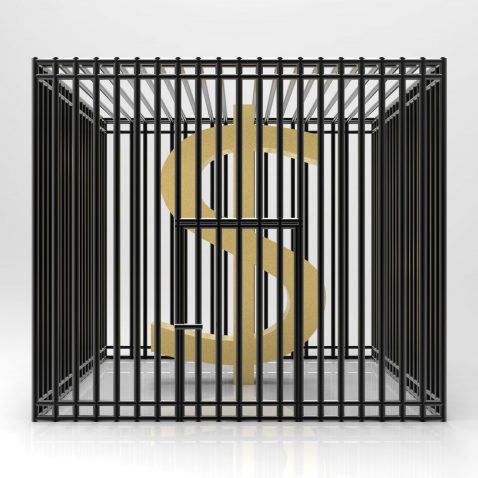
The term Prison-Industrial Complex refers to the rapid expansion of the prison population (as referenced earlier) for the benefit of the profit-making private (and public) prison industry.
In simple terms, the philosophy of “for-profit” prisons automatically incentivizes the political establishment and the populace at large to increase the prison population for purely economic reasons, namely; an increase of individual job opportunities, an increase in company contracts for prison builders and suppliers and the utilization of free manual labor through enforced prison work programs.
The increase of incarcerated individuals, otherwise known as mass incarceration, is patently evident from even a cursory glance at the figures.
The US has the highest incarceration rate in the world at 716 per 100,000 of the population, and when you consider that the US represents just 4.4% of the world’s population and yet has around 22% of the world’s incarcerated population, these figures become truly horrifying.
If studies (referenced earlier) are showing no reduction in violent crime, yet the mass incarceration rate in the US continues to grow, then logically, the only legitimate reason for the continued increase is one of profit.
Across individual states, 16% of incarcerated individuals have been convicted of drug-related crimes, whereas in the federal prison system, a horrifying 49% have drug offenses as their primary reason for incarceration.
The ACLU (American Civil Liberties Union) recently released figures that show 52% of all drug arrests in 2010 were for possession of cannabis, and of the 8.2 million cannabis arrests between 2001 and 2010, 88% of them were just for possession.
Interestingly all though cannabis usage is about equal between the white and black communities, black people remain almost four times more likely to be arrested for possession.
The NAACP (the National Association for the Advancement of Colored People)recently stated;
“32% of the US population is represented by African Americans and Hispanics, compared to 56% of the US incarcerated population being represented by African Americans and Hispanics.”
That means that these minority communities are statistically more likely to become criminalized through cannabis use in a country where they are proportionately a minority and use cannabis the same amount as the white population.
It is hard, therefore, not to see further enforcement of anti-cannabis legislation as an act that continues the long history of unfair and racially discriminatory policies that have preceded it.
Path to Legalization in the US
As the War on Drugs continued to take its toll on communities across the US with no visible sign of any significant accomplishments, and as the anti-drug and anti-cannabis propaganda began to be perceived as more and more ridiculous (with some ads claiming “pot hangovers” last for months and others featuring disturbing talking dogs) public opinion on cannabis began to change.
Such was the shift in public opinion that in 1991 San Francisco residents expressed support for the medical use of cannabis in Proposition P, and the City Board of Supervisors followed this by approving Resolution 141-92, which urged law enforcement officials not to prosecute anyone using cannabis under doctor’s orders.
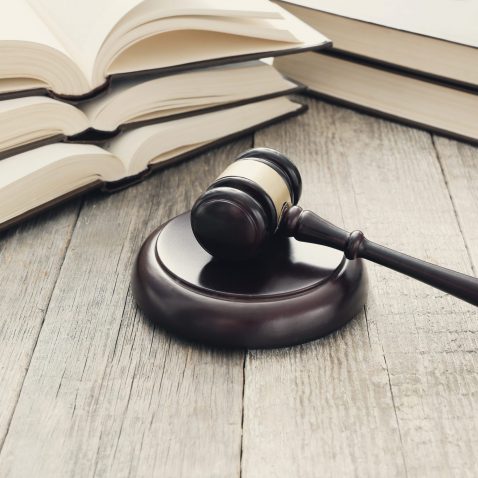
This was the first major victory for proponents of cannabis use, and it allowed the open sale of cannabis to individuals afflicted with AIDS and other severe illnesses and led to the creation of several “Buyers Clubs” in different areas, which began to act as the first cannabis dispensaries.
The victory in San Francisco was followed by the creation of several “Buyers Clubs” in California, which operated with the full knowledge of city officials and in violation of both federal and state law.
Eventually, after much political horse-trading within California, Proposition 215 (otherwise known as the Compassionate Use Act of 1996) was approved by 56% of voters and made California the first state in the US to officially legalize the use of medical cannabis.
In the subsequent two years, a further eight states followed suit and legalized the use of medical cannabis for extremely ill individuals and also allowed the state to ensure cannabis was dispensed in a safe, affordable, and legal way, thus taking funds out of the hands of criminals.
Over the course of the next two decades, more and more evidence has come to light not only of the innate health benefits provided by cannabis but also of the relatively minor negative side effects, especially when viewed alongside other legal toxicants such as tobacco and alcohol.
In addition to this, as the scientific data began to back up what proponents of legalizing cannabis had been saying for decades, there was a significant mood shift in the public psyche. Indeed, a recent poll[vii] by the Center for American Progress showed that 68% of Americans support the legalization of marijuana.
Cannabis use is now legal for recreational purposes in 14 states as well as the District of Columbia, the Northern Mariana Islands, and Guam.
A further 35 states (as well as four out of five of the permanently inhabited US territories) have legalized cannabis for medicinal reasons, while a further 13 states allow access to some form of product that contains cannabidiol (CBD), and 16 states and the US Virgin Islands have decriminalized its use.
Continuing Contradictions
Bizarrely on a federal level, the use and possession of cannabis remain illegal under federal law for any purpose due to the Controlled Substances Act of 1970. Under the Act, cannabis is classified as a Schedule I substance, which makes it fall under the same classification as heroin, LSD, and ecstasy.
Under the Rohrabacher-Farr amendment, individuals are protected from prosecution as the amendment prohibits federal prosecution of individuals complying with state medical cannabis laws.
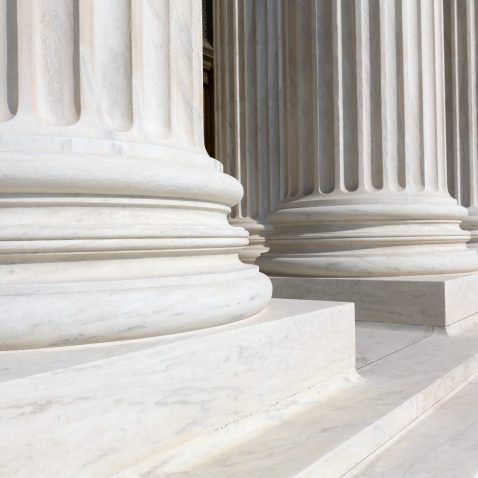
In reality, though, many individual states still criminalize the use of even small amounts of marijuana for recreational purposes and are happy to enforce this prohibition through fines and even jail time.
A significant number of states also still criminalize breeders for cultivating their favorite cannabis strains at home, even in states where cannabis use is legal.
Many politicians, from both sides of the aisle, have stated that they would consider changing the law nationally to decriminalize cannabis use.
Although it should also be said that several more politicians (perhaps worried about what backing cannabis use would do to their poll numbers) have insisted that it is up to each state to decide what the legal designation of cannabis is.
This has created a strange situation where legal cannabis growing (and conversely, punishment for illegal growing) even differs between neighboring states.
For example, Colorado law offers no distinction between homegrown cannabis for medicinal use or recreational purposes and yet is abutted on all sides (bar one) with states where it is illegal to grow cannabis even for medicinal use.
Let’s take Wyoming as an example; the state borders Colorado, where cannabis is legal to use for both recreational and medicinal purposes (in fact, it is even legal for individuals to grow six cannabis plants hydroponically or using soil for personal or commercial use), and yet in Wyoming growing cannabis for any reason (medical or otherwise) is illegal.
Additionally, things become more complicated when considering the situation with Tribal Nations and reservations that have voted to legalize cannabis within their own Nations communities.
For example, members of the Oglala Sioux Tribe have recently voted to legalize growing cannabis for both medical and recreational purposes, whereas in neighboring South Dakota, although medical and recreational cannabis was legalized in a referendum held in November 2020, this was subsequently overturned on February 8, 2021.
Many tribal leaders think the change in legality for pot could potentially generate millions of dollars for their local economies, which would be sorely needed for one of the most impoverished places in the whole of the USA.
Now the Oglala Sioux Tribe has legalized the development of cannabis businesses on the Pine Ridge Reservation in South Dakota, tribal members will be allowed to sell and grow cannabis and social consumption lounges are allowed for both tribal members and nonmembers.
This means that the Oglala Sioux Tribe has become the only Native American tribe to set up a cannabis market in a state where it is still considered a misdemeanor to use cannabis for recreational purposes.
To save losing any potential federal funding, though, tribal leaders are keen for the prohibition still in force at a state-level remaining in place.
This would mean that whilst growing your own cannabis on tribal land would be perfectly legal, there would still be a prohibition of people taking cannabis off the reservation.
Many believe this legal quagmire that means cannabis legality differs nationally, state to state, and even intra-state would only be able to be solved through either a national referendum or presidential decree.
But despite veiled hints at reconsideration from the new Biden administration, there have been no substantial moves on reconsidering the legal status of cannabis in the next few months.
Interestingly though, there may be pressure coming on the Biden administration to legalize from a surprising source, none other than Mexico.
Mexico’s Cannabis Revolution
On Thursday, March 12, 2021, Mexico’s Chamber of Deputies passed a landmark bill to legalize recreational sales of cannabis.
This would make Mexico and its population of 130 million people the largest country to ever legalize cannabis and, therefore, the largest legal market for cannabis ever.
Andrew Rudman, Director of the Mexico Institute at the Wilson Center, agrees that this unprecedented move is going to have a positive knock-on effect for proponents of cannabis legalization in the US, saying;
“My guess is at some point that drives the push to decriminalize or legalize, I think Mexico probably gives more impetus to something that might have happened anyways.”
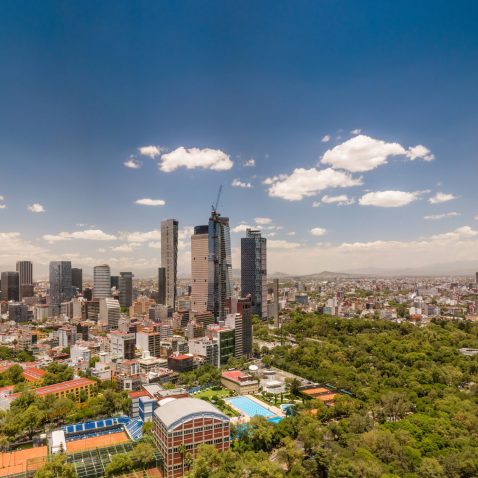
This bold piece of legislation is expected to pass through the Senate and become law fairly soon, which means that in one fell swoop, Mexico would double the worldwide market for individuals with access to legal cannabis, take a significant amount of money out of the hands of criminals and potentially earn large amounts of revenue from taxing sales.
Whilst logistics, taxes, and distribution details still need to be hashed out and decided upon, conservative estimates working off other legal markets put the potential revenue capable of being raised at billions of dollars.
It is these huge figures which may go some way to doing what decades of advocacy and campaigning have so far failed to achieve and bring about national decriminalization and legalization of recreational cannabis use in the United States.
Incentives for Legalization
The US market, whilst slowly and incrementally growing year on year, is still in its infancy but, despite this, still makes eye-watering sums of money from the few states that do allow the legal sale of cannabis.
Industry-leading cannabis research firm BDSA recently announced that US cannabis sales grew to over $17.5 billion in 2020, up by 46% on 2019’s figure of $12.1 billion.
BDSA, in conjunction with ArcView Market Research, recently released a report that stated;
“the global licensed dispensary sales of cannabis will reach $40.6 billion by 2024.”
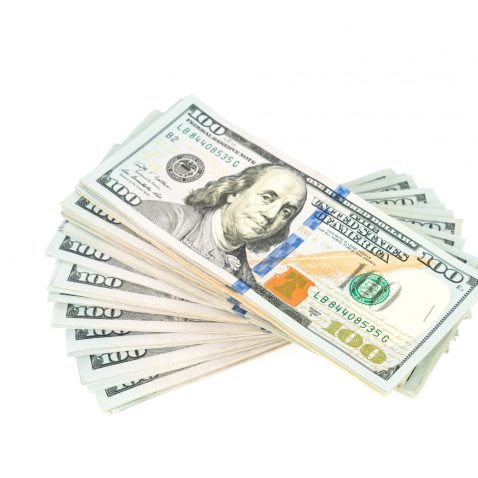
Perhaps more importantly for the Biden administration, the report went on to predict that the US will account for $30 billion or 73% of the global cannabis market.
The report, therefore, suggests that if the current status quo is kept and no further states approve the legalization of cannabis, the US annual sales will double within four years.
Now the important question from a government perspective is how much tax did they receive from all of this revenue?
Well, these figures are difficult to obtain exactly, due to the variations of state and federal tax rates between states that currently sell legal cannabis, but conservative estimates for the lifetime cannabis tax revenue – revenue generated by the government through cannabis taxation since legalization was initially enacted – are thought to be over $4 billion.
Now, if the US government was to completely legalize cannabis throughout the country, then this figure would clearly increase significantly.
A report from another cannabis research company, New Frontier, suggests that legal cannabis could generate an additional $105.6 billion in aggregate federal tax revenue by 2025[viii].
This is a sizable annual sum for the government, particularly given the Covid induced economic downturn, and would go some way to filling the worrying holes in the budget.
The BDSA is predicting[ix] that federal legislation will happen in 2022 but goes on to say;
“(we) assume(s) it will be a state-by-state rollout and that there will be state-by-state regulation.”
They also go on to suggest that some states may still prohibit the legalization of cannabis (as Ohio did recently), and some other states may also want to keep taxation revenue in house as they have spent years, even decades in some cases investing and developing the infrastructure and distribution networks that are essential to get the sector working correctly.
A prime example of this is the state of New York, which following neighboring New Jersey’s decision to legalize recreational cannabis on February 22nd, 2021, also legalized cannabis on March 31st, 2021, but due to the difficulty in setting up the logistical networks and legislative framework is unlikely to start selling cannabis until late 2022.
This decision by New York State Legislature means that New York becomes the 15th state in the US to legalize cannabis and in addition to the potential 60,000 jobs and $350 million in annual tax revenue that could be generated for the state, also sees a massive proportion of this potential revenue allocated for reinvestment.
Of the 14% total sales tax rate, 9% will be going directly to the state and of this 9%, 40% has been earmarked for schools, 20% has been allocated drug treatment and education, and the final 40% will be used to revitalize communities that were disproportionately affected by prior drug laws.
Steve Hawkins, executive director at the Marijuana Policy Project, praised New York’s decision to legalize cannabis and insists that it represents another important step towards federal legalization;
“We expect 2021 to be a record-breaking year for legislatures legalizing cannabis, more than two-thirds of Americans believe it’s time to end prohibition and this move represents the latest example of elected officials joining the chorus of support for legalizing and regulating cannabis for adults.”
Examples of Cannabis Success Stories
Providing a change in the legality of marijuana use is imminent in both the UK and the US; the question then begs; what distribution plan should they follow?
Well, there are three notable examples that are each deemed to be successful, these include;

Canada
Canada is often considered a cannabis success story in that, as was widely reported on October 17, 2018, cannabis for recreational use was legalized.
However, that does not mean that this legalization is without any caveats, and though the cannabis Act allows for legal use, each province and territory are allowed to enact regulations and restrictions around the sale, distribution, and use of cannabis.
In Canada, most households, for instance, are allowed to grow up to four cannabis plants from “licensed seedlings,” the exception to this being the province of Quebec, who opted out of this specific part of the legislation.
Within their first year of legalization, Canadians bought $1.2 billion worth of cannabis, and while this was lower than many had predicted, experts put this down to issues setting up the supply chain and perceived poor quality of legal cannabis compared to illegal cannabis that many users were used to.
However, a recent study published in the American Society of Addiction Medicine states that cannabis consumption rates among Canadians are soaring during the pandemic.
Portugal
In Portugal, cannabis and all illegal drugs have been decriminalized since 2001.
In practice, this means that providing the individual possesses a “personal amount” (a 10-day supply) for recreational use; then there will be no penalties for first-time offenders.
Multiple offenders or those carrying more may be charged, given civil penalties or mandated medical treatment.
Medical cannabis, on the other hand, is legal, and for individuals requiring cannabis to help alleviate illness, this can be dispensed from pharmacies upon displaying a signed doctor’s note.
Although Portugal’s stance is considered liberal, as they have yet to go completely legal, many cannabis-related activities (such as cannabis social clubs such as you would find in Spain or growing your own supply) still remain illicit activities, and as such, there is some anecdotal evidence to suggest getting hold of recreational cannabis is difficult.
Of course, this decriminalization of cannabis and Portugal’s reticence to fully legalize it also has the knock-on effect of continuing to allow criminal networks to have a large monopoly on the supply of recreational cannabis, and there is a corresponding lack of revenue being earned from cannabis taxes when compared to other countries that have opted for a fully-legal approach.
The political landscape in Portugal in recent years has been somewhat fractious, and unfortunately, it doesn’t seem like full legalization will be on the cards any time soon.
So whilst many advocates for cannabis state they wish to see the more conservative countries (such as the UK) where cannabis remains illegal, follow Portugal’s example, maybe in the future, Portugal will look again at their model and decide to follow the US model instead.
Netherlands
In the Netherlands (despite many people’s perceptions), cannabis is not legal.
Much like Portugal, cannabis was decriminalized decades ago, but in stark difference to Portugal, cannabis sales to members of the public are tolerated by local authorities.
Cannabis sales in the Netherlands can only take place in what is known as “coffee shops,” and these establishments must follow strict rules and failure to adhere to them can lead to the premises being forced to close either temporarily (for first-time offenders) or permanently (for persistent offenders).
These rules include no alcohol or hard drugs being sold on the premises, no advertising, no sales to anyone under the age of 18, and no public disturbances.
The official policy on recreational cannabis sold in these establishments is that it remains illegal but not punishable as long as none of the previously stated rules are broken.
But whilst the Netherlands policy on cannabis would appear to be liberal, in reality, distributors face several legal problems.
For starters, while a coffee shop is allowed to buy and sell cannabis (within legal limits), its suppliers are not allowed to import it, grow it themselves, or indeed even sell it to the coffee shop, leading to a common turn of phrase “The front door is open, but the backdoor is illegal.”
Whilst many campaigners are trying to remedy this situation, and while the calls for the decriminalization of the so-called “backdoor activities” are growing, there have also been vocal campaigns by opponents of further decriminalization and cannabis in general.
Many areas of the Netherlands comply with the decriminalized/coffee shop system of rules currently in place but resent the so-called “drug tourism” that decriminalization brings.
Many areas controlled by the strict Protestant political parties or those municipalities that border Belgium and Germany have been vocal in stopping tourists from being able to use coffee shops and have put continued pressure on coffee shop owners more generally.
Indeed a 2005 article in the Observer stated that due to the pressure of the then conservative government, the number of Dutch coffeeshops fell from 1500 to 750 in the space of just five years.
Despite this pressure and in spite of significant reductions in coffee shops, the Dutch government still earns astronomical sums from cannabis, even given its still illicit status.
A 2016 report from the Transform Drug Policy Foundation stated that;
“Annually, the coffee shops generate an estimated 400 million euros in tax – money that would otherwise have accrued to criminal profiteers.”
It’s clear from that quote that the prospective earning potential of even decriminalizing cannabis on a national level in either the UK or the US would be huge, to say nothing of the funds that could be raised if each country voted to legalize the recreational sale and use of cannabis completely.
The Experts Weigh In!
With every country tackling the thorny issue of cannabis legalization in its own specific and idiosyncratic way, it was important to us, as part of this article, to get as many varied and differing perspectives from experts throughout the industry.
To this end, we recently contacted several cannabis industry experts and asked their thoughts on the current state of play within their specific fields.
We hope you enjoy our Q&A discussion with these industry insiders as much as we did!

1) Alfredo Pascual –
[Vice President of Investment Analysis at FastForward Innovations Ltd, the AIM-quoted company focusing on making investments in fast-growing and industry-leading businesses]
Q: Alfredo, with recent polls in Germany suggesting that a slim majority are against legalizing cannabis for adult use, what are the major challenges facing pro-legalization advocates on the continent?
“While it’s true that recent polls indicate that a very slim majority in Germany opposes adult-use legalization, most of the current German members of parliament are part of a party that supports reform. And that situation will only get better after the next elections.
The German federal election for the 20th Bundestag is expected to be held in September 2021. Current polls indicate a big rise of the Green Party, from almost 9% in the 2017 elections to over 20% now (see here). The Green Party is a strong supporter of legalization, and it has gained voters mostly from the current coalition parties (of which CDU/CSU is clearly against legalization and SPD is only timidly in favor).
What this means is not just that the next German Bundestag will have an even larger number of members from a party that supports legalization. This also means that it’s almost certain that the next German government, to be a majority government (the usual case in Germany) will need to have in the coalition at least one political party (if not all) that supports adult-use reform.
Answering your question more directly, I think a major challenge is that policymakers who support legalization take this issue seriously and make it a priority because it’s of little value to have politicians who support legalization but who are too afraid to propose it.
Another challenge in Germany is that although most political parties support adult-use reform, they don’t necessarily agree on how that should be done. So far, this has prevented them from being united around this issue.
Another challenge is UN and EU rules that prevent countries from fully legalizing adult use, but it looks like that may be circumvented by doing pilot experiments. Before full-blown, commercially-oriented legalization in Europe, I expect to see several limited pilot projects, including in Germany”
Q2: Europe’s economy has suffered significant damage due to restrictions designed to curb the spread of COVID-19, contributing to an already difficult fiscal situation across the European Union. Do you feel that the economic impact of the pandemic and the monetary opportunities that cannabis commercialization presents could turn the tide on anti-legalization sentiment across the European bloc and pave the way for regulation and taxation?
“Yes, but only minimally. While the economic argument for legalization tends to be quite popular in the U.S., in Europe the arguments that resonate more with policymakers are those centered on public health. In Europe, it’s less common to find a policymaker mentioning tax revenue as the main benefit of legalizing”
2) Michelle Fields –
[Michelle Fields is a practicing New York State Attorney with litigation experience in the areas of State and Federal Criminal Defense, Business Immigration, Contract Law and Cannabis Regulatory ComplianceSEED/SDGs, and euGMP.]
Q1: The Biden administration has recently dismissed staffers that admitted to using cannabis due to it being illegal under federal law, despite some of the dismissed staff having used cannabis in states where it was legal.
What issues does the discrepancy in federal and state law introduce and how can they be overcome?
“The discrepancy is in enforcement as well as the Reasonable Accommodation Laws. When Marijuana is still illegal federally under the Control Substance Act, Federal employers and its employees have to adhere to this Act, however, the Biden dismissals weren’t due to a violation of CSA but a disqualifying factor when it comes to obtaining Security Clearance (Top Secret) coupled with other potential omissions-even the investment in Cannabis Stock is disallowed for Federal Employees who have Security Clearance. Lastly, States under the Americans with Disabilities Act and Human Rights Law will be able to accommodate Medical Marijuana Patients with documented qualifying medical conditions and or disabilities”
Q2: Do you feel that cannabis will be legalized federally in the near future and what are the main challenges that need to be overcome in order for this to occur?
“I am cautiously optimistic about the Marijuana Opportunity Reinvestment and Expungement Act (MORE) and the reason being is because of the substantial influences of Big Pharma and Tobacco currently in this industry as well as the seeming monopolization of the Multi-State Operators. Some of the challenges are numerous from the limited expungement of Federal Convictions with no State preemption as well as limited protection of our immigrant population as well as confusion between federal and state regulatory schemes”
Q3: How do you feel the current senate consideration of the SAFE Banking Act and Senator Booker’s Cannabis Legislation Bill will impact the federal decriminalization of cannabis use?
“The Safe Banking Act is very much needed and will make it easier to do business in this Industry–Freer Market. It will allow for low-interest loans and grants, reduce high payment processing fees; blockchain solutions, assist Social Equity applicants in obtaining capital-low interest loans and grants, affordable banking solutions as well as reduce robberies of dispensaries(smash and grabs)”
3) Michal Takac –
[Michal Takac, is a CBD evangelist and Founder and CEO at PhytoPūr Bio. A passionate advocate of Hemp products since they provided the only pain relief and post-trauma treatment that worked after a traumatic industrial accident eight years ago.]
Q1: The use of cannabis for medicinal purposes, when prescribed by a registered specialist doctor, was legalized in the United Kingdom in November 2018. Do you feel this shift in UK policy is a sign of further relaxation in the use of cannabis in the future and changing sentiment in the UK more generally?
“Recognizing the benefits of medical cannabis and legalizing its use is a significant step forward. However, I would not see that as an indication of any impending liberalization of the laws impacting recreational cannabis. This is an entirely different prospect fraught with difficulties, both political and moral. Any move towards the legalization of recreational cannabis will require changes to a myriad government drug and tax policies and the introduction of several new ones. Obviously, it is a change that several countries have already addressed with varying degrees of success, and it certainly an opportunity with potentially big social and tax implications for the Government, but it is still a huge political decision, as it is hard to stuff the genie back in the bottle if it does not work as planned”
Q2: How do you envision hemp industry growth in the United Kingdom over the next decade? Do you believe that purchasing hemp products in the UK will be as commonplace as picking up medication from your local pharmacy or chemist is now?
“The hemp industry is still in infancy, its growth is inevitable whatever the industry needs legitimizing to gain a stable place on the market. Purchasing hemp products at a specialist outlet would be an ideal scenario”
Q3: With respect to high THC content products, how do you envision the recreational cannabis use market changing in the UK over the next few years, if at all, and what will this mean for the UK’s post-COVID economy?
“Unapproved medicinal high THC content products can be placed on the market or distributed only under a specialist license. The recreational cannabis market is not my specific area of expertise hence I can only speculate if a fully licensed product distribution framework would influence the process of decriminalizing the recreational UK cannabis market”
4) Bryan Passman –
[Bryan is co-Founder of cannabis industry talent acquisition firms Hunter + Esquire and The GIGG® along with his wife Jessica Passman.
Bryan is globally renowned in executive search and advisory in the Cannabis, MedTech/ Pharma/Biotech, and Food & Beverage (FMCG) Consumer Packaged Goods industries.]
Q1: In a rapidly growing and ever-changing cannabis market, how important is it that small businesses looking to secure a foothold in the industry find and recruit the right talent? What are the hurdles most cannabis startups face when it comes to recruitment?
“Scaling your cannabis business, or any business for that matter, with the right talent is critical for success. Human capital is your most important and best-appreciating asset. Nothing else matters without the right people on the team in the right roles at the right times. Most cannabis startups struggle with hiring the right talent primarily due to time and financial constraints as well as a high percentage of inexperienced hiring authorities”
Q2: With more and more states across the US legalizing each year, a growing Canadian market, and Mexico on the verge of becoming the world’s largest legal cannabis market, how much job creation potential does the cannabis industry truly have over the next few years? Which sectors in the industry do you feel will benefit the most from a future boom in growth and job creation?
“I see job creation in cannabis continuing to grow at a rapid rate, outpacing many other mainstream industries and benefitting from all of the available and elite talent that’s been negatively impacted by economic and employment downturns that the cannabis industry is insulated from. I see the plant-touching MSO sector benefiting most since that’s where most of the job growth exists”
Q3: How important is it that businesses in the relatively young cannabis industry strive for diversity and ensure that different voices from a variety of backgrounds are represented and part of the decision-making process?
“It’s massively important for young (cannabis) businesses to scale with diverse teams of people bringing diverse thinking and healthy friction to the many decision-making processes”
Summary
The US could very soon face the prospect of being stuck between two countries where cannabis is legal and vast sums of revenue are being raised, and by standing in the way of full legalization, not only are they obstinately refusing to take a cut of the legal cannabis market but they are additionally flying in the face of public opinion.
A recent Gallup poll suggested that around 70% of the American population now support legal cannabis for a multitude of different reasons, so with sentiment growing in both the UK and the US to reconsider their current antiquated positions on cannabis legality and the health and economic benefits being reported from multiple data-backed studies, can these governments really be that obstinate that they refuse to acknowledge that cannabis should be legalized?
Well, unfortunately, the answer may be frustratingly yes, (which just goes to show you can never discount a politician’s inbuilt desire to be contrary and ignore the will of the people).
Many conservative individuals and political groups on both sides of the Atlantic still remain steadfast in their views that cannabis should remain illegal.
Additionally, it would appear from recent events, that both the Biden administration as a whole and prominent individuals within the White House, have begun to distance themselves from their previous, vote-winning platform of cannabis legalization and have now decided to go back on their word.
Many news outlets (Forbes and the New York Post amongst others), recently reported on the Biden administration’s bizarre and widely criticized decision to fire White House staffers over past cannabis use.
What makes the decision so duplicitous and contemptible is that not only did the White House initially state that new hires could be given a waiver for past use (providing they admitted it), they then went back on this and fired staffers who had previously used cannabis, even if they had used cannabis in one of the states where it was legal.
This astounding change in policy is even more noticeable with Vice President Kamala Harris who already had a chequered past were legalizing cannabis was concerned but received praise and endorsements with her more recent relaxed approach to legalization.
During her career as a Prosecutor, it’s interesting to note that Vice President Harris oversaw more than 1900 cannabis related convictions, whilst many supporters point out that of these convictions only a minority served jail time, this appears to be the beginning of a decades long opposition to cannabis and cannabis legalization.
In 2010 for instance, when running for the position of States Attorney General, she was strongly opposed to legalizing cannabis, actively campaigning against legalization to the point of releasing a voter guide that stated;
“(legalization) seriously compromises the safety of our communities, roadways, and workplaces.”
Kamala Harris dropped her opposition to legalization when running for President herself in 2020 and went so far as to tweet;
“It’s time to end mass incarceration. This includes legalizing marijuana, sentencing reforms, and abolishing private prisons.”
Whilst these are noble sentiments and were widely supported by the democratic base, recent statements seem to show yet another marked shift in the Vice President’s position on cannabis.
After being chosen as President Biden’s running mate in August 2020, Kamala Harris’s position began to almost instantly align with Biden.
Rather than becoming a liberalizing influence on Biden and pushing for cannabis reform on a federal level, by September 2020, Harris stated her position as;
“we will decriminalize the use of marijuana and automatically expunge all marijuana use convictions and incarceration for drug use alone.”
Despite hopes for more upon election, Harris, Biden, and the White House have stuck to this line and unfortunately, the hope of federal legalization in the near future appears to be rapidly fading.
Of course, whilst all people (including politicians) are entitled to change their opinion over time and reach different conclusions based upon research and reflection, at this juncture, the continued shift in policy from politicians as a whole and the Vice President in particular seems to be more political expediency rather than a dawning of enlightenment.
Pro-cannabis advocates have spent decades patiently getting to this point, and legalization is closer now than ever before, but as with all things, it may take the power of the almighty dollar (or in the case of the UK, the Great British Pound) to convince enough of the public and conservative members of each prospective government to finally accede and legalize cannabis.
Change appears to be slow in coming to the US but as public opinion shifts, and demographics amongst voters continue to move toward a more liberal, open, cannabis tolerant position, pro-cannabis advocates are hopeful that full legalization will occur in the next decade.
Share the Love
If you found this post useful, please let others know about it by sharing it.
